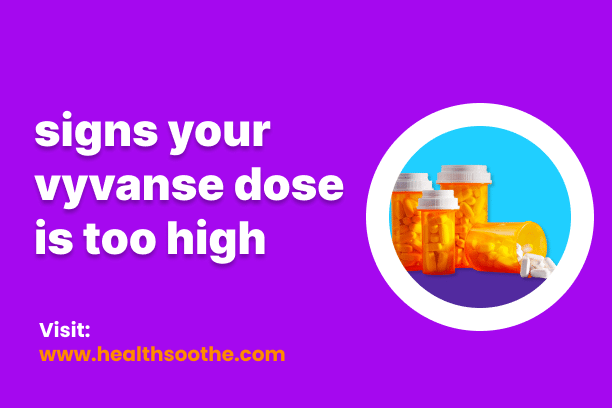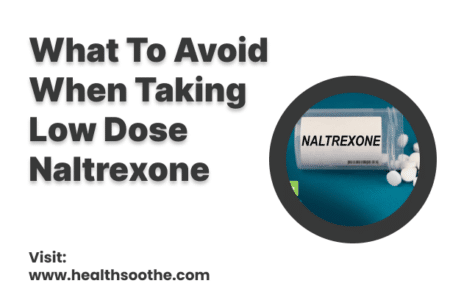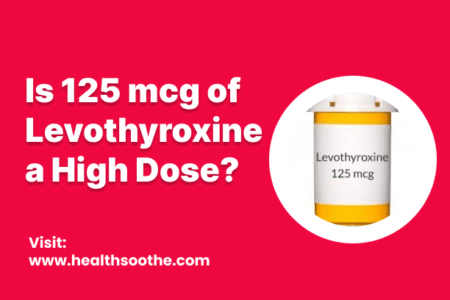Vyvanse is the branded name for a stimulant medication known as lisdexamfetamine, utilized in the treatment of attention-deficit hyperactivity disorder (ADHD) and binge eating disorder. Despite its efficacy in addressing these conditions, Vyvanse is classified as a controlled substance due to its potential for misuse.
It is crucial to closely observe your symptoms when using Vyvanse for ADHD or binge eating disorder. If you experience heightened anxiety, irritability, or restlessness, it could indicate that your dosage is too high. Regrettably, the consumption of excessive Vyvanse in a single instance poses a serious risk of a life-threatening overdose.
What are the Side Effects of Vyvanse?
In the event that Vyvanse is prescribed for the treatment of ADHD or binge eating disorder, your physician will apprise you of potential side effects. Typically, these side effects tend to diminish as your body acclimates to the medication.
Common side effects associated with Vyvanse encompass:
- Upper abdominal pain
- Dizziness
- Nausea or vomiting
- Irritability
- Changes in appetite and subsequent weight loss
- Dry mouth
- Difficulty sleeping
- Increased energy
Should these side effects worsen or persist, it is advisable to seek guidance from your doctor.
For severe side effects of Vyvanse, immediate medical attention is imperative. Contact your doctor or emergency medical services if you experience:
- Blurry vision
- Rapid or pounding heartbeat
- Agitation or aggression
- Mood swings
- Hallucinations or suicidal thoughts
- Muscle twitching or shaking
- Changes in skin color
- Swelling in the ankles or feet
- Rapid and significant weight loss
How to Tell if Your Vyvanse Dose is Too High
The maximum recommended dosage of Vyvanse is 70 mg per day for both adults and children. While some individuals may require a higher dose of Vyvanse to attain therapeutic benefits, others may find such dosages intolerable. Hence, it is crucial to recognize indicators suggesting that your Vyvanse dose may be excessive.
If you encounter the following symptoms, it could signify that your Vyvanse dosage is too high, necessitating immediate consultation with your doctor:
- Tremors
- Insomnia
- Nausea and vomiting
- Elevated blood pressure
- Irregular or rapid heartbeat
- Hallucinations or confusion
- Panic attacks and heightened anxiety
- Severe headaches
- Convulsions
- Aggressive behavior
- Fever
It is essential never to exceed the prescribed Vyvanse dosage. Unauthorized dose increases, whether self-initiated or not directed by your doctor, may lead to the onset of these adverse effects.
Furthermore, utilizing Vyvanse without a valid prescription may expose you to an excessively high dose, resulting in severe symptoms and the potential for overdose.
Read Also: Myrbetriq side effects: What you should know
Pros and Cons of vyvanse
Pros of Vyvanse
- Effectiveness in ADHD Treatment
- Binge Eating Disorder Treatment
- Long-Lasting Effects
- Reduced Potential for Abuse
Cons of Vyvanse
- Risk of Side Effects
- Potential for Misuse and Dependency
- Interaction with Other Medications
- Cost
Differences Between vyvanse and lamotrigine
Vyvanse (Lisdexamfetamine)
Vyvanse is a central nervous system stimulant used primarily for the treatment of Attention-Deficit/Hyperactivity Disorder (ADHD) and binge eating disorder. It works by affecting certain chemicals in the brain and nerves that contribute to hyperactivity and impulse control.
Lamotrigine
Lamotrigine is an anticonvulsant and mood stabilizer used in the treatment of epilepsy and bipolar disorder. It helps prevent seizures and stabilizes mood in individuals with bipolar disorder.
Alternative to vyvanse
Methylphenidate-based Medications
- Ritalin (methylphenidate): Available in immediate-release and extended-release formulations, Ritalin is a central nervous system stimulant commonly prescribed for ADHD.
- Concerta (methylphenidate extended-release): This is an extended-release formulation of methylphenidate, providing a longer duration of action compared to immediate-release versions.
- Focalin (dexmethylphenidate): Similar to methylphenidate, dexmethylphenidate is available in both immediate-release and extended-release formulations.
Can You Overdose on Vyvanse?
Ingesting an excessive amount of Vyvanse at once can lead to an overdose, with instances commonly arising when an individual consumes a dosage significantly exceeding 70mg within a single day. Vyvanse overdoses are predominantly observed in individuals who misuse the substance for recreational purposes.
Symptoms indicative of a Vyvanse overdose encompass:
- Uncontrollable shaking
- Hallucinations
- Panic attacks
- Aggressive behavior
- Vomiting
- Confusion and disorientation
- Fever
- Restlessness
- Severe insomnia
- Rapid heartbeat
- Heart attack
- Seizures
- Coma
- Death
If you or someone you know exhibits signs of a Vyvanse overdose, it is imperative to seek immediate assistance by contacting 911. Without prompt and appropriate medical intervention, an overdose can escalate to a life-threatening condition.
Signs that you are Addicted to Vyvanse
Individuals may misuse Vyvanse due to its stimulant effects, which include heightened energy levels and a sense of euphoria. Engaging in such substance abuse significantly elevates the risk of developing a substance use disorder.
Indications of Vyvanse addiction encompass:
- Taking a dosage surpassing the prescribed amount
- Seeking multiple prescriptions for Vyvanse from different doctors ("doctor shopping")
- Developing tolerance, necessitating higher Vyvanse doses for desired effects
- Experiencing uncontrollable urges or cravings for Vyvanse abuse
- Persisting in Vyvanse abuse despite adverse consequences at work, school, or home
- Inability to cease or regulate Vyvanse use
- Continuing Vyvanse use despite experiencing physical or mental health repercussions
- Combining Vyvanse with other substances to enhance the desired effects
- Using Vyvanse without a valid prescription
- Altering the method of administration, such as snorting or injecting the drug
- Employing Vyvanse to enhance performance at work or school
Engaging in any form of Vyvanse use outside its prescribed guidelines constitutes substance abuse. This pattern can swiftly escalate into addiction, which may prove challenging to overcome without professional intervention. Therefore, individuals grappling with Vyvanse addiction are encouraged to seek assistance from a prescription drug rehab program.
Conclusion
While Vyvanse serves as an effective medication for managing conditions like ADHD and binge eating disorder, it is crucial to use it responsibly and within the prescribed guidelines. The potential for abuse, overdose, and the development of a substance use disorder underscores the importance of vigilance and communication with healthcare professionals.
Recognizing the signs of an overdose, understanding the symptoms of addiction, and being aware of the risks associated with misuse are paramount for individuals using Vyvanse. Seeking prompt medical attention in case of an overdose or reaching out for support when facing addiction is essential for a healthier and safer outcome.
If you or someone you know is struggling with Vyvanse misuse or addiction, it is strongly recommended to seek professional assistance through a prescription drug rehab program. With the right support and intervention, individuals can navigate the challenges associated with Vyvanse use and work towards achieving a healthier and balanced life.



